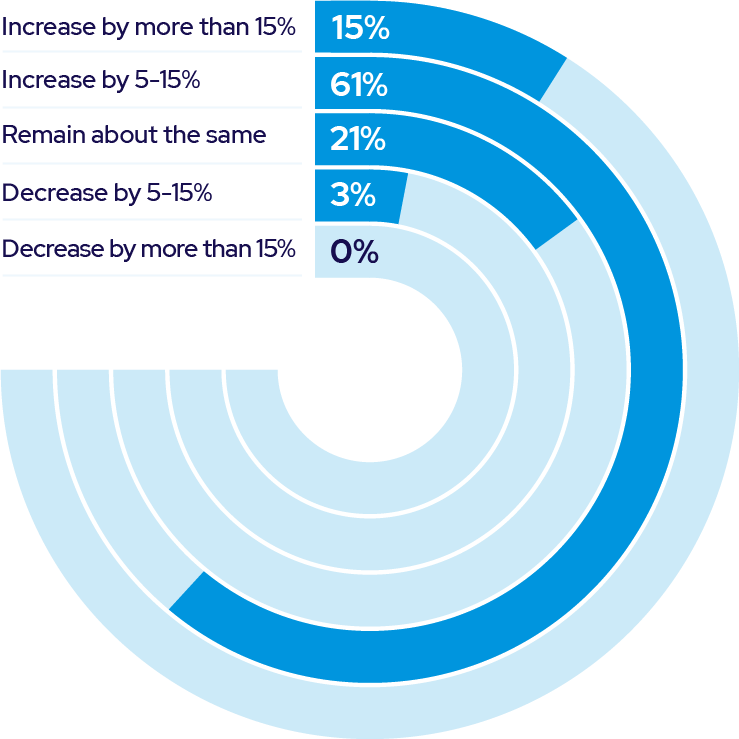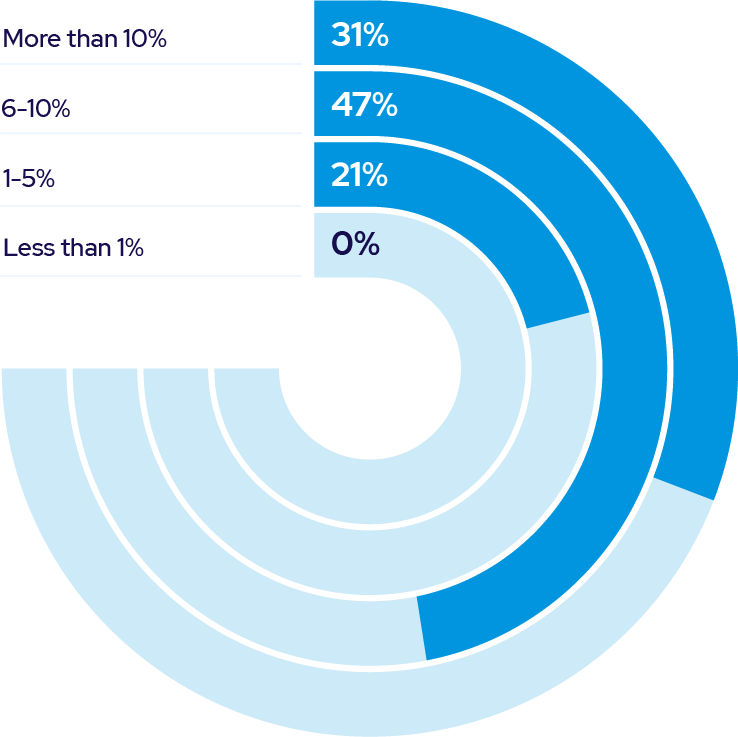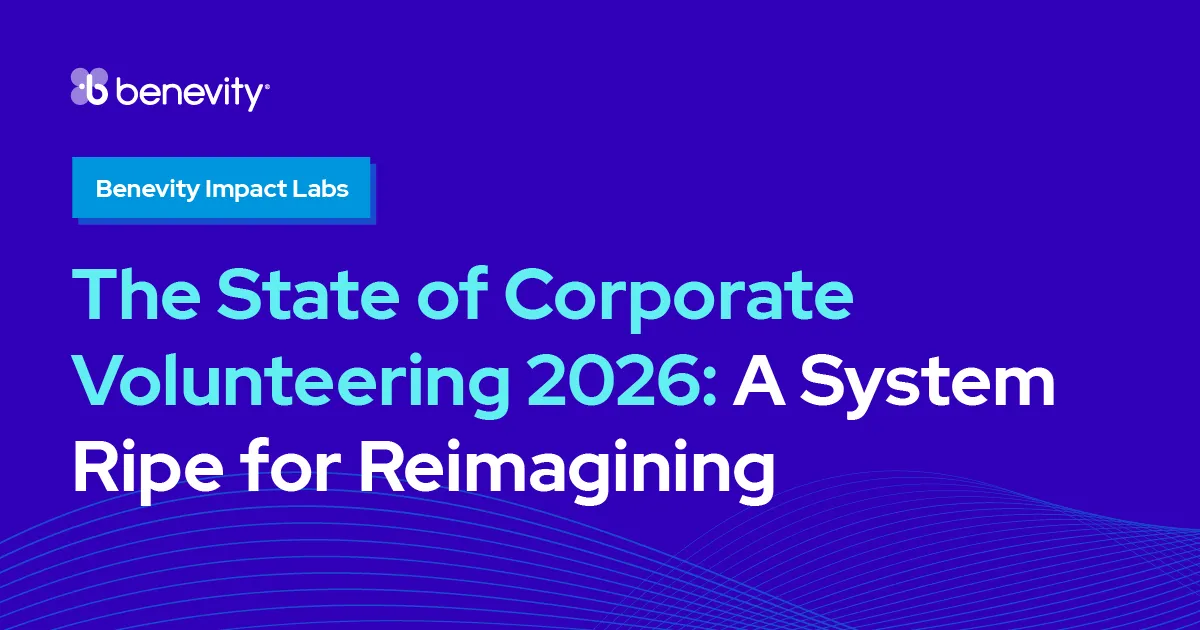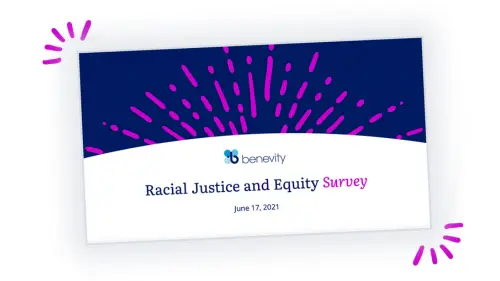Key insights
The landscape
At just about every turn, businesses are hitting headwinds. Economic growth has stalled in the face of stubbornly high prices, elevated borrowing rates and geopolitical uncertainty. In this more anxious climate, backlash has brewed against companies’ ESG (environmental, social and governance), CSR (corporate social responsibility) and DEI (diversity, equity and inclusion) commitments, with critics arguing that they divert resources from driving core business and shareholder value.
We set out to understand executive commitment to CSR investments in the mid-2020s, against this backdrop of internal pressures, external pushback and other business challenges. We surveyed 500 senior leaders from VP to C-suite level in the U.S. and U.K. about their stance on and plans for social impact in the current climate and its potential return on investment.
The findings reveal that, despite news headlines, the majority of senior leaders are planning to invest more in CSR in the coming year, not less. And they’re focusing on smarter strategy and ROI to ensure those investments translate to business value.
CSR budgets are on the rise
Despite popular perception, most leaders are not in fact stepping back from CSR. According to the data, for the majority of organizations, CSR investments are actually set to increase.
Nearly a third of senior leaders who have oversight of their organization’s CSR budget say they are currently allocating more than 10% of their total corporate budget to CSR, with 47% allocating between 6-10%.

Employee Resource Groups see the greatest increase in investment
Employee Resource Groups (ERGs) are the top investment area where respondents expect their organization to increase support over the next 12 months, followed by employee volunteerism and developing ethical business practices around AI.
ERGs are evolving
Benevity’s State of Workplace DEI report (2023) found that an overwhelming majority of employees who have worked for companies offering ERGs agree they have a positive impact on belonging, inclusivity and well-being — and improve company culture overall. Research in 2024 showed that 80% of companies say ERGs are increasing in significance and, by working more closely with other departments, are helping companies become more diverse, inclusive, equitable and better businesses.
The takeaway
Most executive leaders have not changed course in the face of anti-ESG sentiment. The majority of companies are continuing this work and are increasing support for employee engagement initiatives that foster connection and belonging.
CSR is a way to achieve business goals
In recent years, CSR played an important role in helping businesses support their communities — to respond to crises, and drive us toward equity and justice. Now, we are seeing CSR’s business outcomes come into sharper focus.
Among companies planning to increase CSR investment over the next 12 months, close to half (43%) of senior leaders say their organizations are boosting resourcing because investments made in CSR initiatives deliver direct business ROI.
It is worth noting that just 5% of senior leaders say one of the top reasons their company will increase investment in CSR initiatives is “because it’s the right thing to do.”
The top reasons for the decision to increase CSR investment all point to the same thing: it’s good for business:

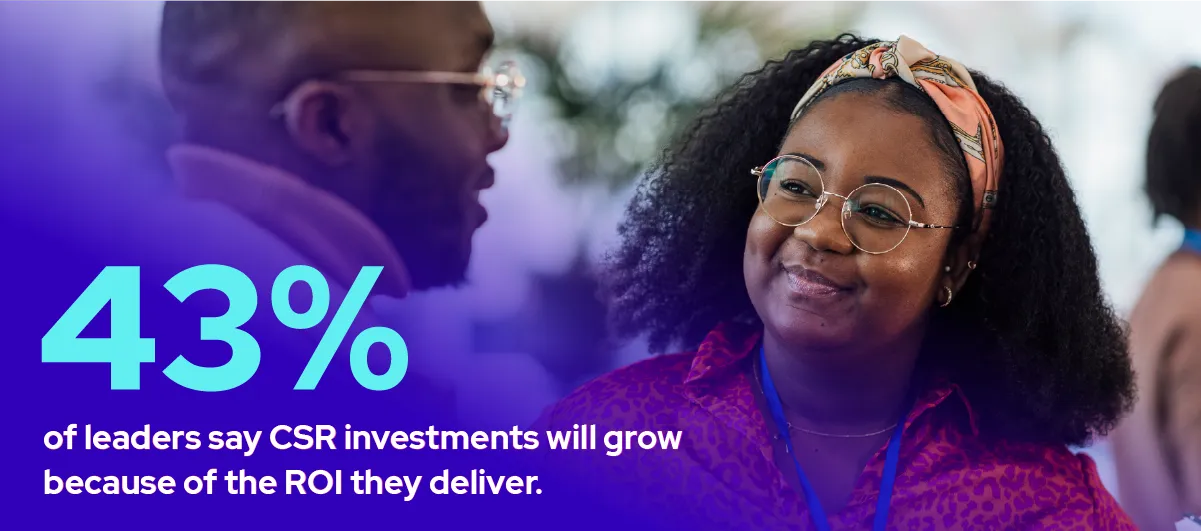
Top talent is paying close attention
Nearly a third of leaders (31%) who are planning to increase investment in CSR initiatives over the next 12 months are doing so to gain an edge in today’s competitive talent market.
According to 2022 research from McKinsey, 70% of employees said their personal sense of purpose is defined by their work. A Monster survey about Gen Z — who now make up 25% of the workforce — found that 74% rank purpose ahead of a paycheck.
LinkedIn’s Workforce Confidence Index found 80% of Gen Zers say that better alignment with their values and interests is a priority for their place of employment.
Public scrutiny is stalling CSR investments
Not all companies, however, are unaffected by the external pressures. Twenty-four percent of senior leaders with insight into their organization's CSR budget say they plan to maintain or decrease investment in CSR initiatives over the next 12 months. Among those leaders, almost half (48%) cited public scrutiny of ESG commitments as a top reason why.
Executives who don’t have an understanding of the business value of CSR are also exercising more caution in their investments. The two other top drivers for maintaining or decreasing investment were a lack of direct ROI for the business (45%) and a lack of buy-in from other executives (41%).
The U.K. leads on strategic CSR
U.K. leaders report that their organizations currently allocate a larger percentage of their companies’ annual budget to CSR initiatives than do U.S. leaders.
U.K. leaders are also more likely than U.S. leaders (50% vs. 39%) to cite “because investments made in CSR initiatives deliver direct business ROI” as one of the biggest reasons behind their companies’ increasing investments in CSR over the next 12 months. This suggests that U.K. organizations may be more successful at securing budgets for CSR because they’re more strategic in their approach.
Percentage of annual company budget currently allocated to CSR initiatives
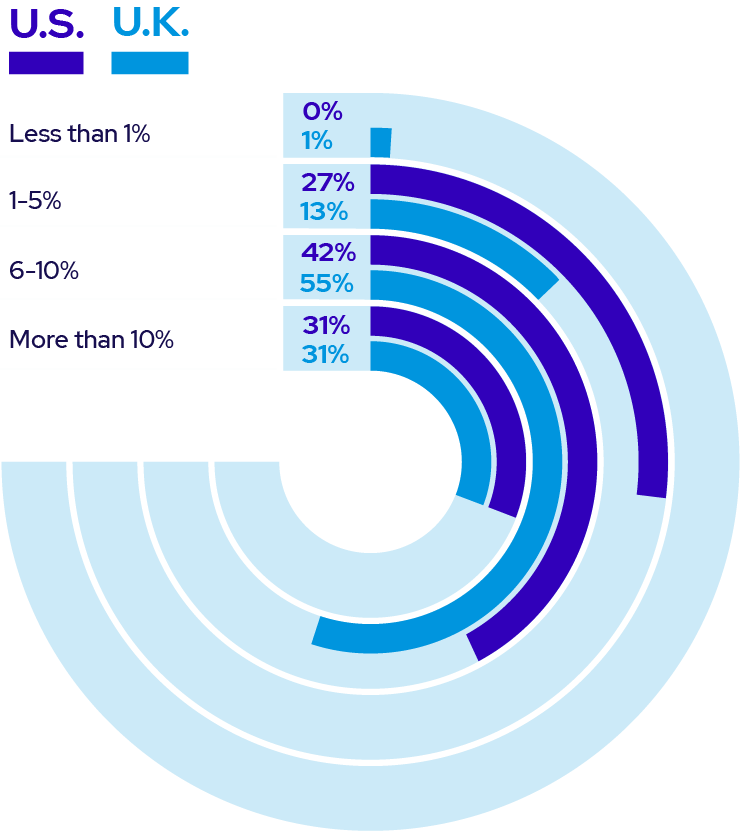
The takeaway
Most executive leaders have not changed course in the face of anti-ESG sentiment. The majority of companies are continuing this work and are increasing support for employee engagement initiatives that foster connection and belonging.
Improving measurement is critical

Amid competing organizational priorities, the biggest challenges companies face in planning CSR initiatives center around proving their value relative to other company needs.
Benevity’s State of Corporate Purpose 2024 report found 62% of impact leaders are increasing investment in impact data, measurement and reporting.
The findings show that companies currently employ a range of factors to measure the business and social impact of their companies’ CSR initiatives. However, more reliable measurement and reporting mechanisms, such as impact reporting tools, that are akin to how other organizational goals are measured could more effectively position the value of CSR investments vis-a-vis other departmental budgets and priorities.
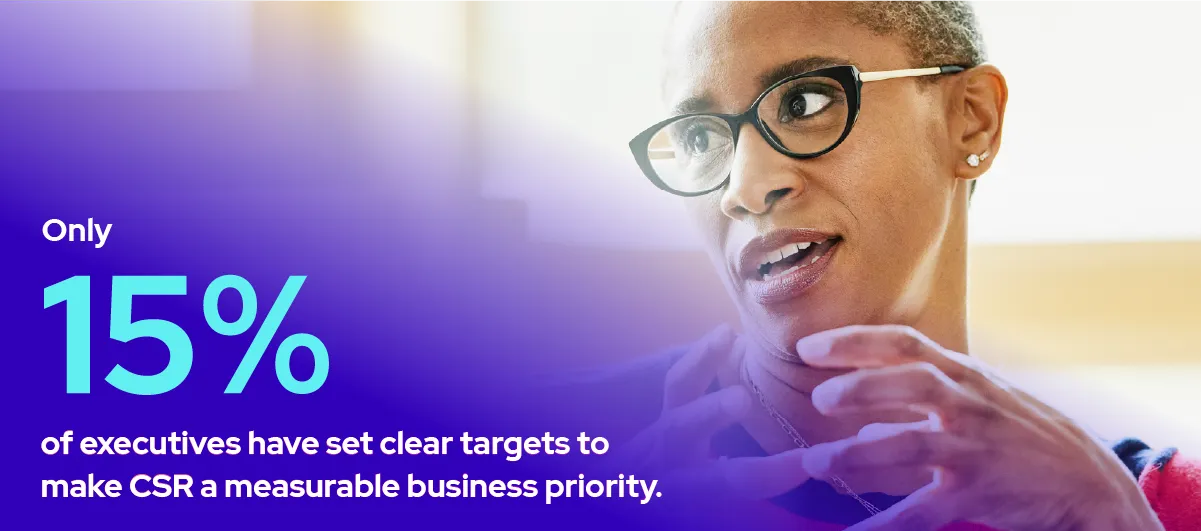
A third of leaders (32%) say measuring the social impact of their CSR initiatives is equally important to their company as measuring the business impact.
Measuring CSR’s business impact
Measuring CSR’s social impact
The takeaway
Executive leaders need more hard data and reliable reporting tools to confidently demonstrate CSR’s value to their business and their communities. This is how CSR leaders can drive prioritization and allocation of appropriate resources amid competing priorities.
The bottom line
The data shows that the vast majority of companies and their executives are continuing to make meaningful commitments to CSR, despite the volatility, uncertainty, complexity and ambiguity (VUCA) of the 2020s.
ROI is the key differentiator between companies that are investing more in CSR and those that aren’t. Now is the right time for executives to lead their companies’ efforts to prove, reinforce and popularize the business and social impact of their CSR investments.
Methodology
Between June 30 and July 8, 2024, Benevity surveyed 300 senior leaders in the U.S. and 200 senior leaders in the U.K. about their perspectives and plans for CSR in the workplace. At the time of the survey, all respondents were 18 years or older and full-time employees at organizations with more than $1B/£1B in annual revenue. All respondents held positions at the vice president level or higher and maintained some level of involvement in their organizations’ CSR initiatives. Due to rounding, some responses may not add up to exactly 100%.
Terminology
For the purposes of this report, corporate social responsibility (CSR) refers to a company’s investments and commitments to social impact, including integrating social, ethical and environmental concerns into their business operations and interactions with their stakeholders to contribute to sustainable business development and success while delivering economic and social benefits. CSR may also be referred to as “social impact.”
